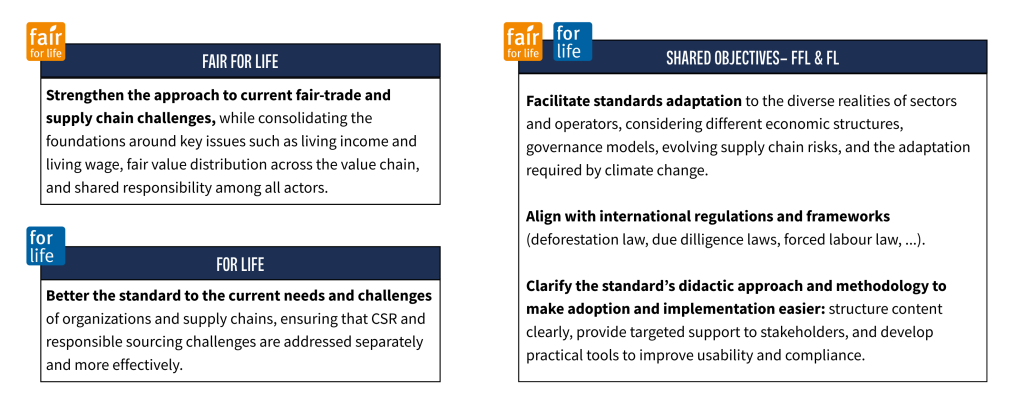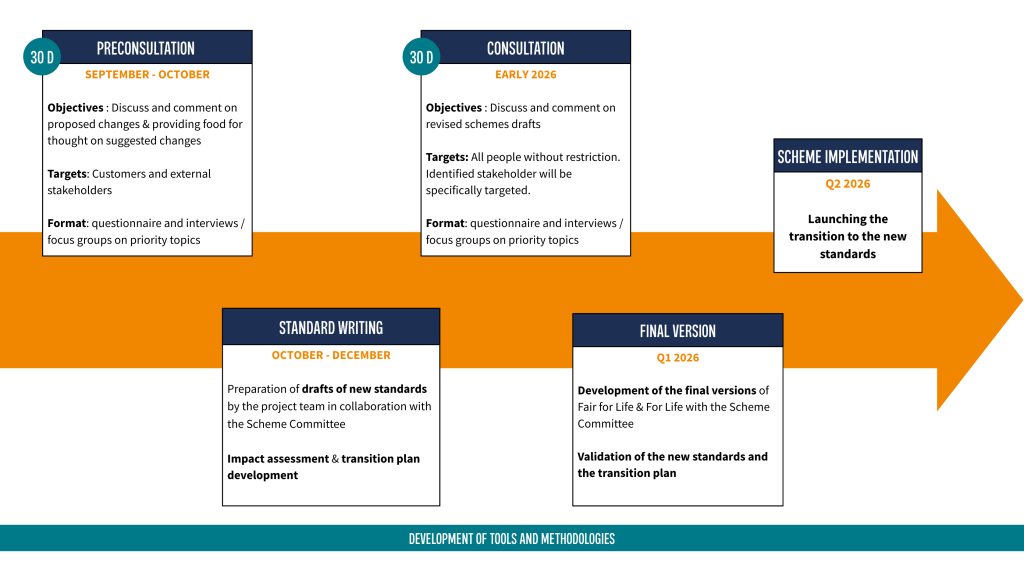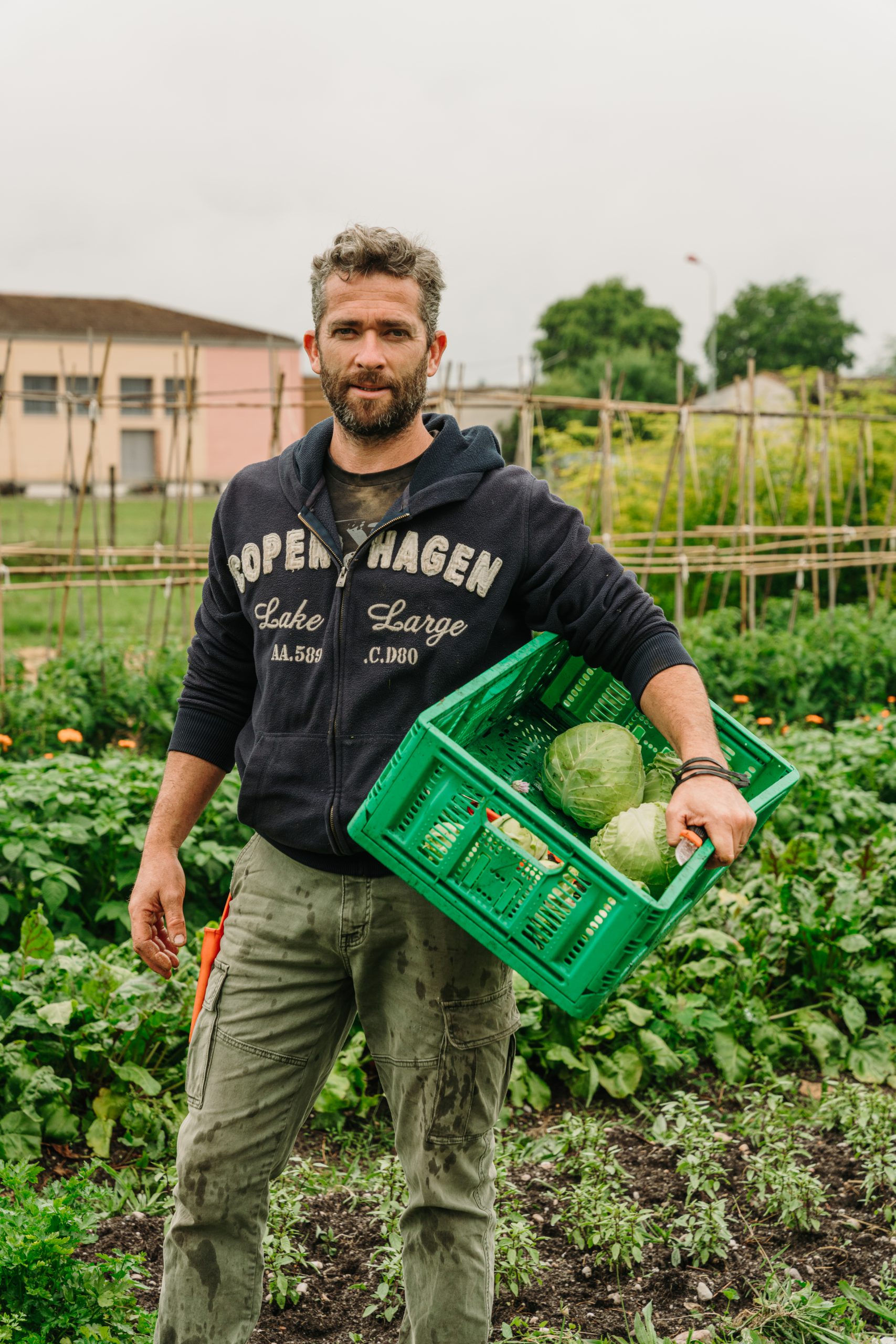In 2026, the Fair for Life and For Life standards are undergoing a revision process marking a key step in strengthening their relevance, impact, and effectiveness standards.
Building on their respective theories of change and terms of reference, these two standards are rooted in complementary visions and missions. They aim to promote fairer trade and more responsible sourcing, while fully addressing today’s social, economic, and environmental challenges.
The revision process follows international good practices as outlined in the ISEAL Code. More information at isealalliance.org.
Next steps
As part of the launch of this review, dedicated webinars will provide a detailed overview of the revision, offer guidance on the pre-consultation process, and answer your questions. For those unable to attend, a recording will be made available on our website after the session.
Webinar in English
September 15
11:00 a.m. to 12:00 p.m. (UTC +2)
Webinar in French
September 15
2:00 p.m. to 3:00 p.m. (UTC +2)
Webinar in English with Spanish subtitles
September 16
4:00 p.m. to 5:00 p.m. (UTC +2)
Scope of the 2026 revision of Fair for Life & For Life standards
The 2026 revision of both the Fair for Life and For Life standards will cover the adaptation and changes in:
- The technical content of the standards (criteria and structure),
- The standards’ processes such as eligibility, certification, registration and recognition.
The 2026 revision will also redefine and precise the scope of For Life standard and its complementary ambition with Fair for Life standard.
Revision objectives

The overall direction of the revision is guided by the intention to integrate elements throughout the standard that strengthen a risk-based approach and to develop the standard as an impact management tool through the integration of performance indicators and promotion of active impact strategies.
The revision procedure and timeline
Fair for Life & For Life revision procedure has been designed to comply with the requirements of the ISEAL Code of Good Practice for Setting Social and Environmental Standards (version 1.0 – December 2023).
This approach is part of a process that involves various stakeholders (certified operators, NGOs, institutional partners, forward-looking companies, etc.).. Given our intention to allow these different stakeholders to express their perspectives before a draft standard is developed, the revision will be subject to a pre-consultation period in addition to a consultation period.

The revision process of the Fair for Life and For Life standards is carried out under the responsibility of two committees:
- The FFL/FL’s scheme committee, makes technical recommendations on the revised scheme, seeks to find consensus on the content of the standard within the Terms of Reference.
- The FFL/FL’s steering committee supervises the overall scheme revision process, and approves the final version of the scheme.
The review process and the role of the various committees can be found in the dedicated document.
After the Consultation
All feedback received will be reviewed and analyzed. The final revised version of the standards will be discussed and challenged by the Scheme Committee. The final recommendation will then be sent to the Steering Committee for validation.
A public summary of the consultation results will be published alongside the final version.
Aware of the changes and repercussions that this revision of the standards could have for operators already certified and/or integrated into an Fair for Life/For Life process (registration and recognition process), a transition plan will also be developed.
Once the standards are published, we will work on guidelines, translations and checklists.
Several options will be offered to those affected, and the 2022 standards will continue to be used for a certain period of time. Sufficient time will be allowed for compliance.







